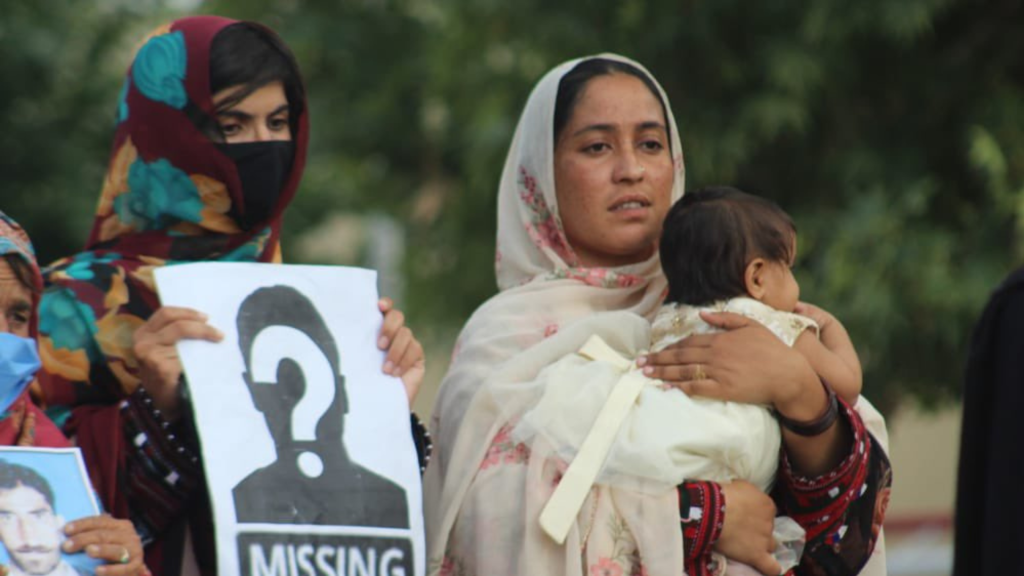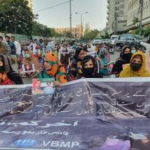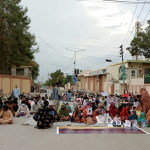Zaheer Bangulzai, whose body was among the eleven people killed by the military on 13 July 2022 in Ziarat, Balochistan, and was buried by his family, resurfaced on 29 July.
On July 12, Baloch Liberation Army, a Baloch militant group kidnapped an army officer Colonel Laiq and his cousin while they were traveling to Ziarat. Later, both abductees were killed and their bodies were thrown. The security forces swiftly initiated a search operation and claimed to kill 11 terrorists in an encounter.
The dead bodies were brought to Civil Hospital Quetta where one body was identified as Shams Satakzai on the first day. He was forcibly disappeared by security forces in the year 2017 and since then he had remained in the custody of forces. The identification of Shams Satakzai, as a detainee, sent shock waves among the families of victims of enforced disappearances.
In the following days, seven out of eleven dead bodies were identified as disappeared persons, who were abducted by forces months and years ago and had remained in the custody of forces. The victims were identified as Shams Satakzai, Dr. Mukhtiar Baloch, Salim Karim Bakhsh, Shahzad Baloch, Shah Bakhsh Marri, Mohammad Khan s/o Feroz Khan, and Jumma Khan Marri.
The families of missing persons went on protesting against the killing of the disappeared persons in fake encounters. The protest gradually gained momentum and many organizations, like Voice for Baloch Missing Persons, demanded a judicial inquiry into the matter, assurance that enforced disappeared persons would not be killed in fake encounters, and provide information about the fate and whereabouts of their loved ones. The government refused to respond to the demand.
As families kept on protesting, the military brought Zaheer Bangulzai back to counter the narrative that he was killed in Ziarat. Despite all the pieces of evidence of his disappearance and the continuous campaign of his family for his safe recovery, the forces coerced Zaheer and his family to give a false statement that he had been in an Iranian prison for illegally crossing the border.
Moreover, the deportee list of Pakistani nationals who illegally entered into Iran did not contain the name of Zaheer Ahmed on the specific date mentioned by the government officials.
The families of victims of enforced disappearances rejected the government’s claim and continue their sit-in protest in front of the CM and governor’s house compelling the Chief Minister to form a judicial commission however, he stated that the formation of the judicial commission is to wash away the stain on security forces and regarding the other two demands, he said that he has no authority on enforced disappearance cases.
Appallingly, no measure has been taken by the government for the identification of the rest of the four bodies including the person who was buried in the place of Zaheer Ahmed and the CM refused to assure the families that there will be no more extrajudicial executions of detainees but still, the sit-in protest of families in front of the CM and the governor’s house continued for the 29th day.
Depriving a person of fair trial and access to information of allegations against a detainee including the whereabouts is a violation of constitutional and basic human rights. Human Rights Council of Balochistan demands the government to take measurements to identify all the killed persons in Ziarat and provide information about the fate and whereabouts of all enforced disappeared persons.


